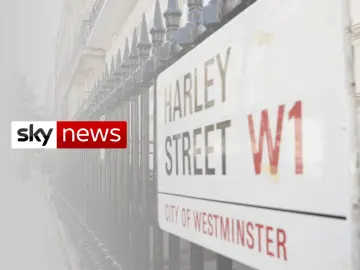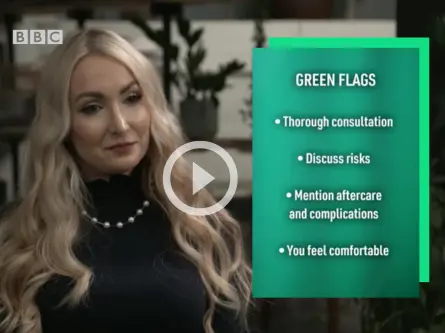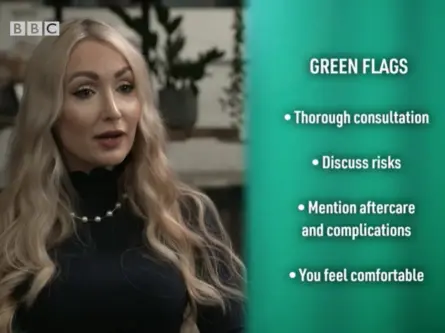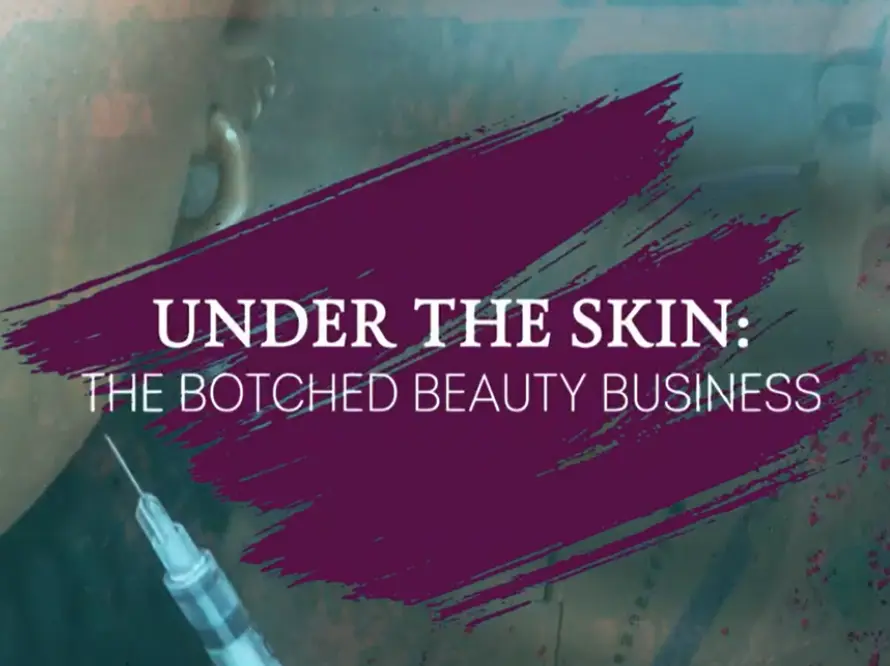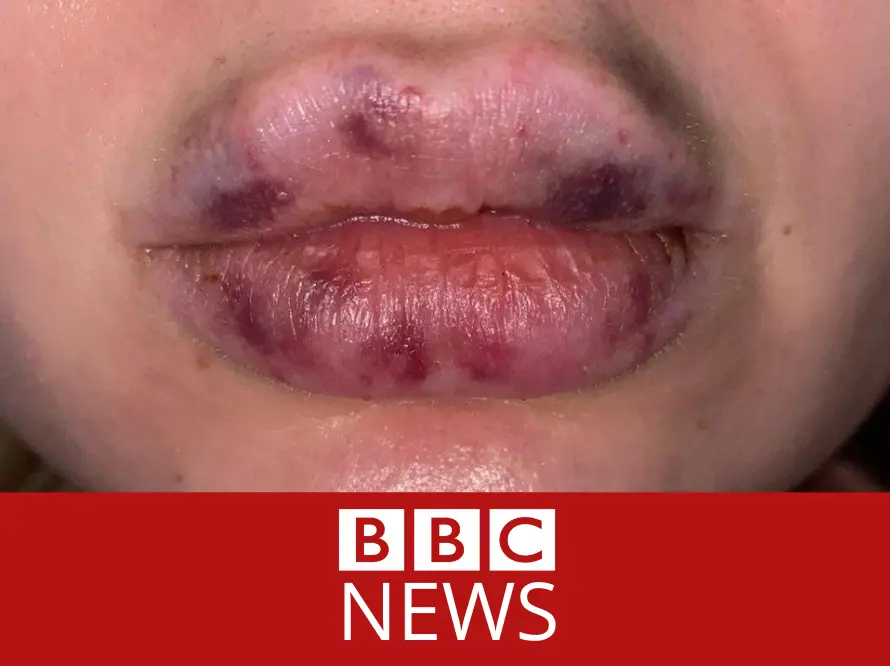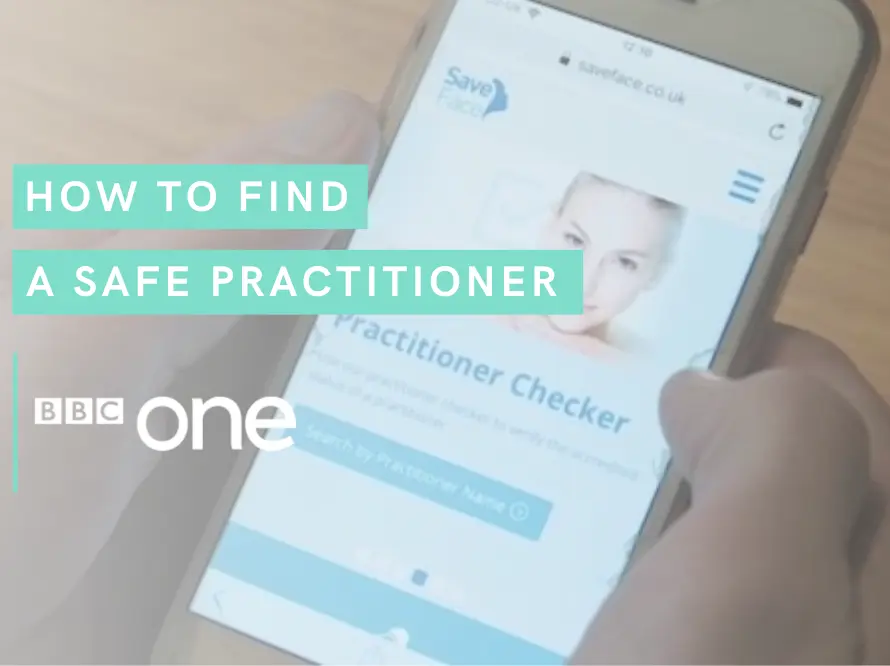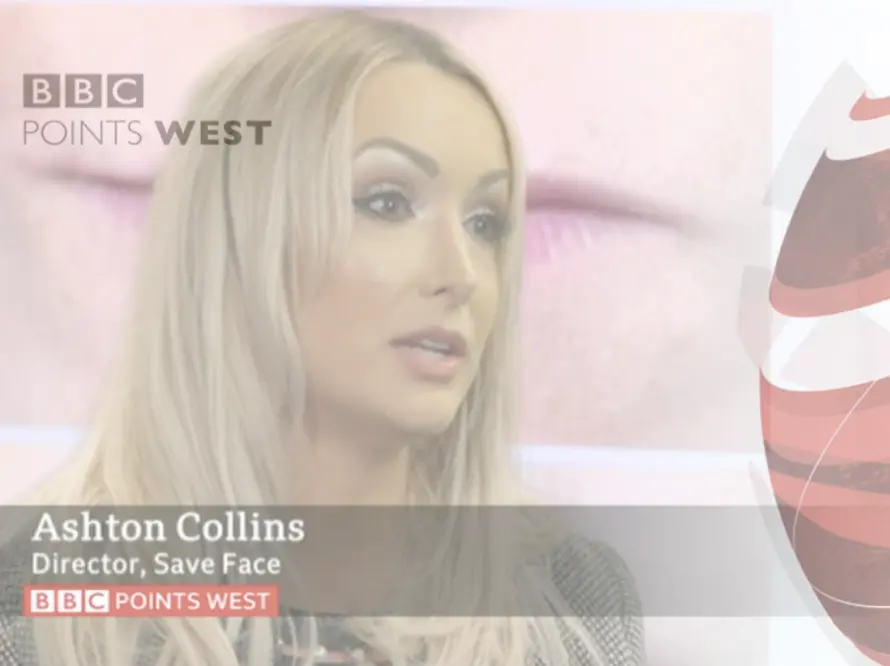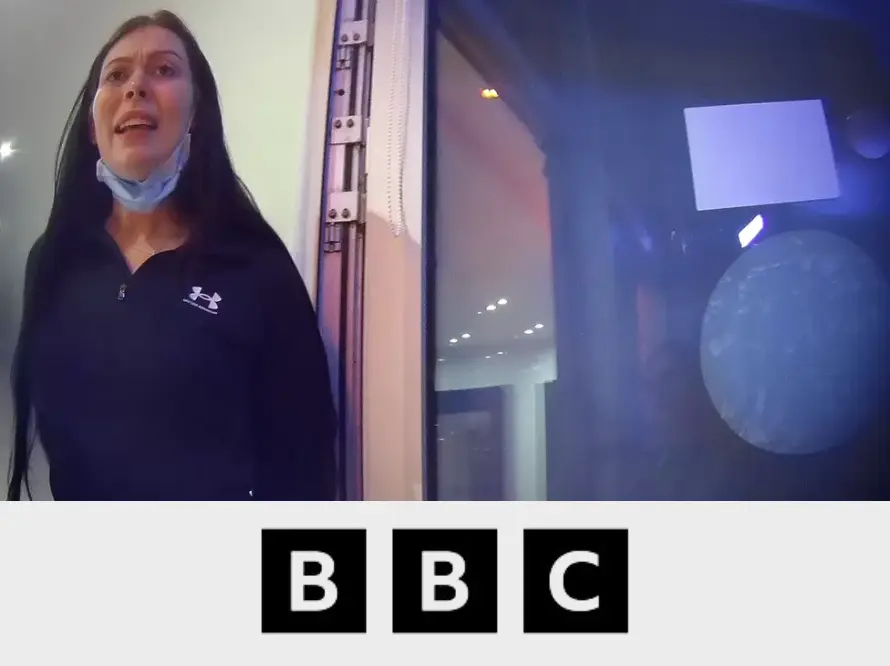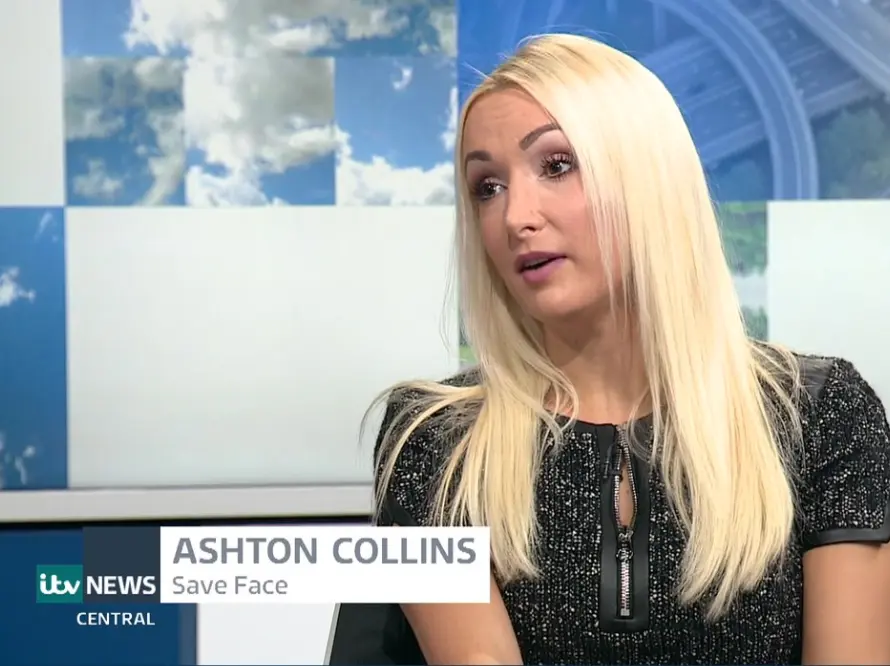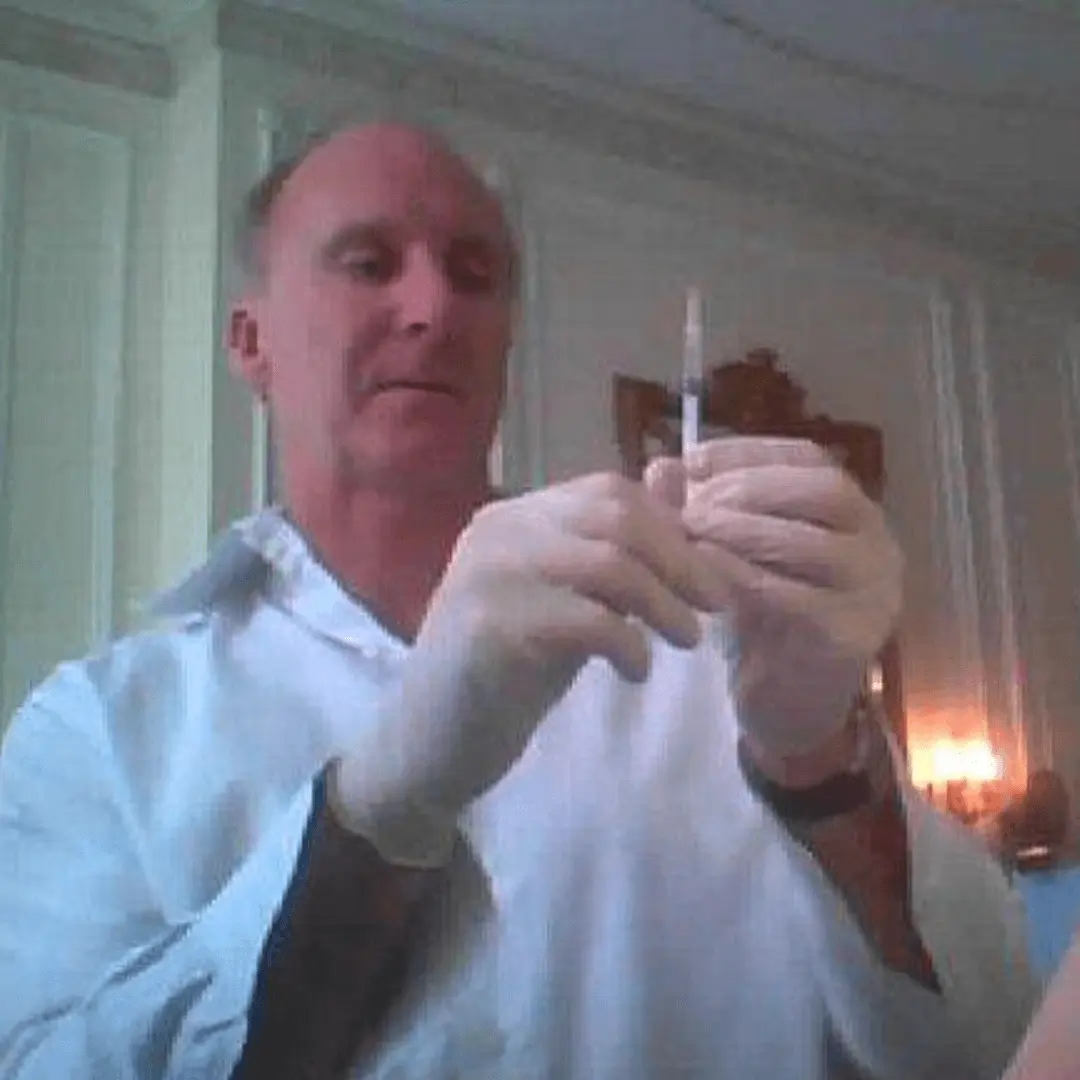Sky News has uncovered rampant substandard training in the aesthetic industry, putting patients at risk and leaving students short of thousands of pounds.
"EARN SIX FIGURES A YEAR!"
"BECOME YOUR OWN BOSS!"
The Facebook post leaps out at you as you scroll.
It's advertising a two-day training course which, at a cost of £1,500, will teach students from medical and beauty therapy backgrounds how to give dermal fillers.
The ad is one of hundreds on social media for training courses in invasive aesthetic procedures.
And while there are many reputable providers, some are selling training that falls far below the recommended standard. One woman told us she was injecting people within 30 minutes of arriving on her first day.
Another told us that she left the course with certificates stating her competency in procedures she had never even practised before.
Experts have identified an "enormous" rise in the number of training providers in the last two years.
The sector forms part of the booming non-surgical cosmetic industry, which the government predicts will be worth £3.6bn by the end of this year.
But it's an area that's almost entirely unregulated.
We've spoken to countless industry insiders who told of "appalling" experiences on training courses, which they say left them unable to practise safely.
We also discovered that, even with no experience whatsoever, it's easy to get on a course.
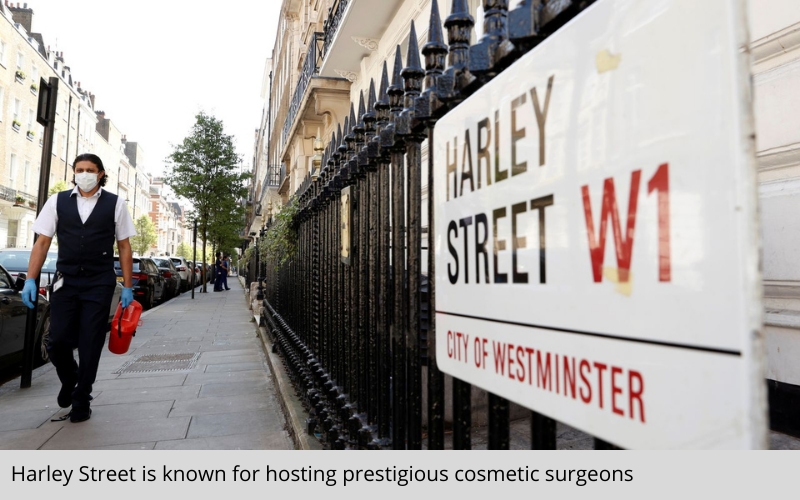
Out of eight training providers we contacted, four were willing to offer us a place on a beginner's course despite having no relevant experience.
These courses promised to take students from complete novice to qualified in dermal filler and anti-wrinkle injections in under a week.
We looked into 100 Facebook business pages and found nearly half were set up since the beginning of 2020, and nearly three quarters were created since 2019.
It's this growth in the industry that makes it hard for students to tell the good courses from the bad.
Practitioners have also told us of a "culture of silence" permeating the industry, where students feel they cannot speak out about their experiences or seek restitution from companies for fear of legal action, online harassment and even physical threats.
Because of this, we've decided not to use the real names of the people in this story.
For the last two months, we've looked into this murky underworld. This is what we found.
'There was mess everywhere… the needle bin was overflowing'
Jane is an experienced beauty therapist who had always wanted to learn how to give dermal fillers.
Dermal fillers are substances injected into your face to fill in wrinkles or accentuate certain areas such as the lips, cheeks or chin. They're temporary cosmetic fixes, usually lasting between six and 18 months.
Last year, Jane paid £1,600 for a two-day beginners' course taught by someone who markets themselves as a Harley Street doctor.
Harley Street, in central London, is known for hosting a large number of prestigious specialist doctors, including plastic surgeons.
She thought the first day would be spent going over the relevant theory, learning about the anatomy of the face and safety procedures, followed by a day of supervised practical learning.
"I got there and he'd booked me on the wrong course. He was doing the advanced course," she told Sky News.
He said he was happy for her to continue and not to worry as it was "all the same".
"We got told that we needed to hurry up as our first clients were in at 11am," said Jane.
"I was a bit thrown. I was like, 'Okay. I don't know what I'm doing. I've never injected before.'
"I'd gone over the anatomy and physiology paperwork at home, but as far as I was aware, we were going to be covering it."
Dermal filler can cause serious complications if it is injected in the wrong place, including vascular occlusion.
This is when the filler is accidentally injected into a blood vessel, causing it to become blocked. It can lead to skin necrosis, which means the tissue around the affected area dies.
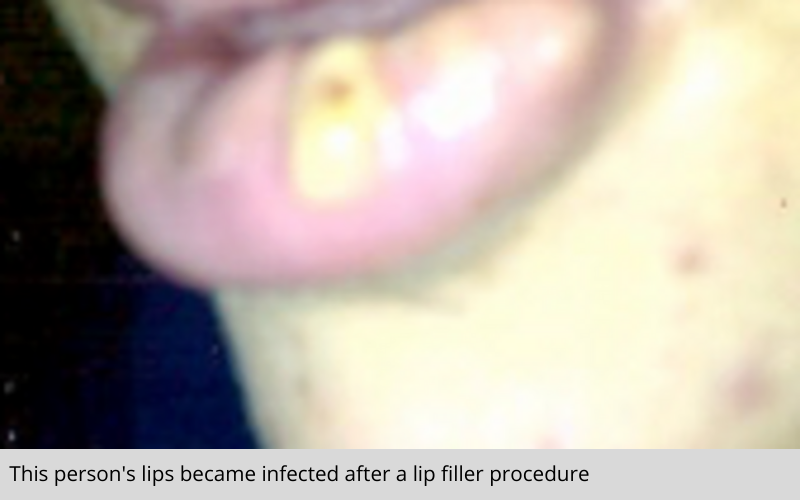
The tutor told her not to worry and said they would go over that side of things as they went along.
"We had clients straight away and we were injecting. I was really nervous," she told Sky News.
Jane says they were injecting people until seven o'clock in the evening, with hardly a break for lunch.
"There was mess everywhere… the needle bin was overflowing. It felt like we were being used as cheap labour," she said.
"There were lots of people coming in to get discounted treatments. And there were also lots of people returning because of a bad experience on a previous training day."
She never received the anatomy and physiology lectures she thought she was getting.
Jane left the course after two days with certificates claiming her competency to offer dermal fillers in the cheeks, jaw, tear troughs and lips, as well as anti-wrinkle and B12 injections.
We looked into this doctor and found that while he is on the medical register, he is not listed as a specialist.
'We were injecting by the afternoon... It seemed quite dangerous'
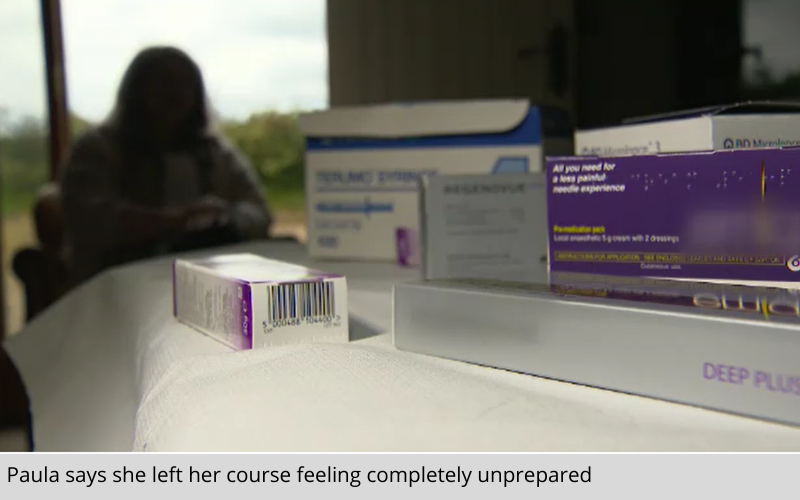
Paula had a similar experience. A former nurse, she was attracted to aesthetics for the potential earnings and felt it would complement her medical background.
In October last year, she went on a one-day course in filler and anti-wrinkle injections at foundation level.
After briefly going over some theory in the morning, she says they were injecting models by the afternoon.
But because there were so many people on the course, they were only able to practise some of the injections they were meant to try.
"We each took it in turns to do a little bit of treatments each," she said. "I injected a quarter to the top lip and then the rest of the students shared the bottom lip."
It meant that for some treatments, the students observed the mentors rather than doing the injections themselves.
"It seemed quite dangerous," said Paula.
"I don't think you should just be observing cheek filler and be allowed to say you're competent to go out and treat somebody."
The practical element lasted three-and-a-half hours. But the volume of students and time taken for the mentors to explain and demonstrate some of the techniques meant Paula estimates that she only practised for around 45 minutes in total.
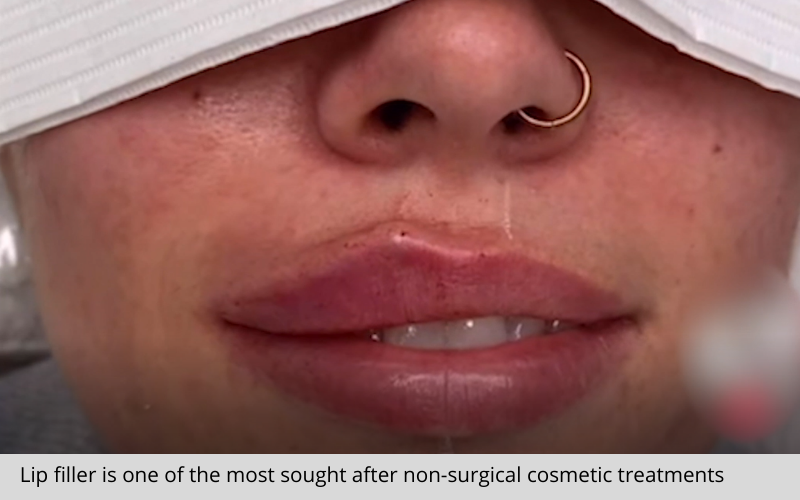
They didn't show her how to deal with any of the potentially life-changing complications that could occur if she made a mistake.
Both Paula and Jane left their courses feeling completely unprepared to practise as aestheticians despite earning certificates that stated their competency.
Paula is still fighting to get back her £925. After the company refused to refund her, she says she plans to take them to the small claims court if her bank cannot help.
It was all the savings she had at the time.
Jane received a partial refund but is still short by hundreds of pounds.
They both felt they had no choice but to seek further training before taking on clients, costing even more money.
'The risk of complications is high'
These are just two of the countless reports of poor training Sky News has heard about.
Other stories allege that one course took place in the trainer's garden, another that the trainer was smoking while demonstrating procedures.
We even heard reports that students were certified without having had the chance to practise the injections on a live model.
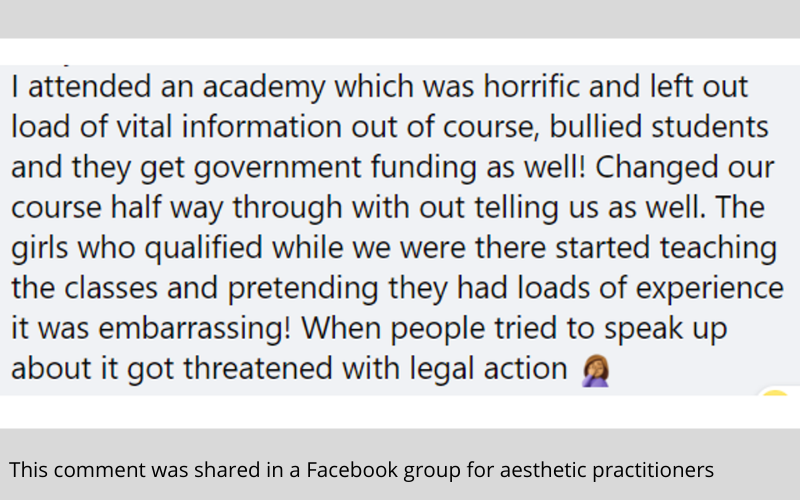
But unlike Jane and Paula, not everyone will know whether their training is poor quality, and industry bodies are concerned about the risk that poses to public safety.
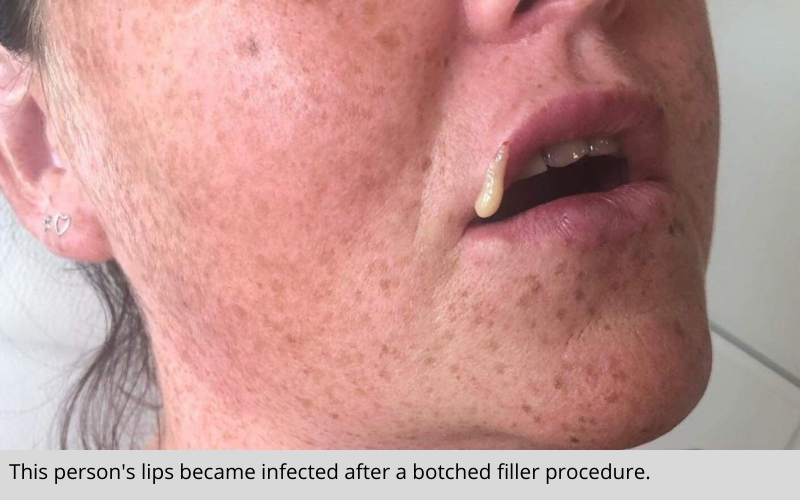
Industry bodies have also raised concerns about entry requirements for some courses.
We inquired about eight courses which promised to take students from complete beginners to qualified in injectables in less than a week.
We outlined our complete inexperience in either beauty therapy or medicine.
Of the five responses we got, four were willing to offer us a place, provided online learning modules were completed before.
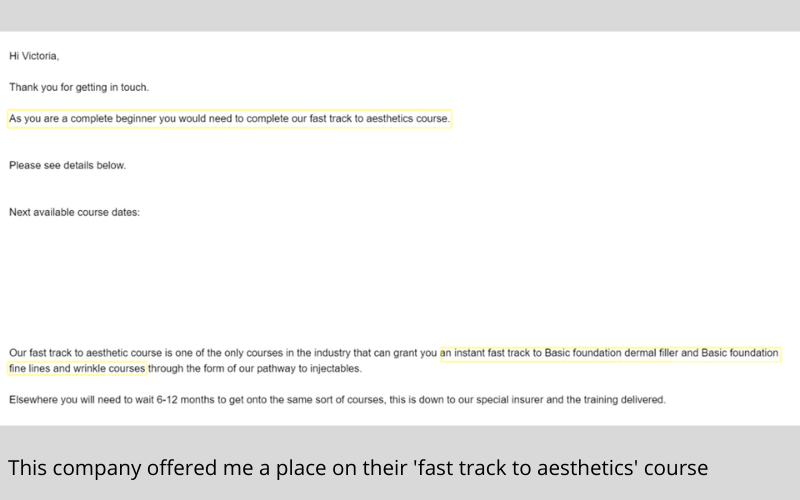
Only one told us that anyone joining would need to sit an exam before moving onto the practical elements.
That means half of the companies we contacted were willing to train a complete beginner with no qualifications in beauty or healthcare to perform invasive treatments - in a matter of days in some cases.
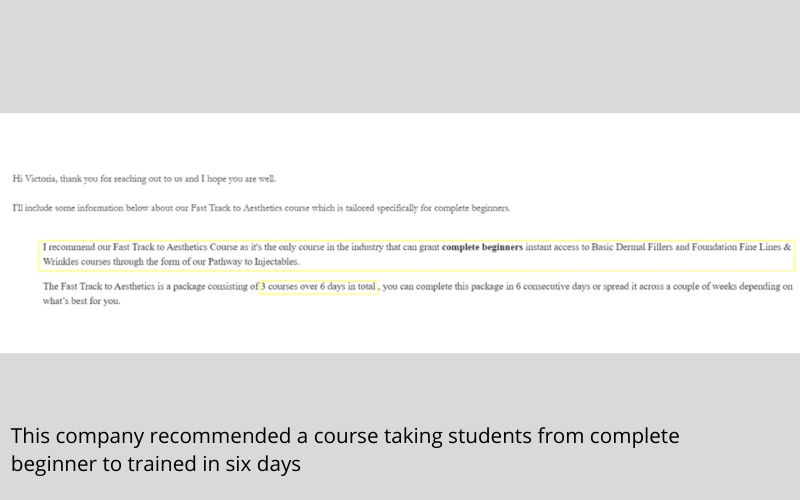
'Lured in' by misleading social media ads
Sky News analysed 100 Facebook business pages of companies offering these services, but it is estimated that the number of new academies is much higher.
And because the market is saturated with different options, students rely heavily on what they see online about courses when deciding which to choose.
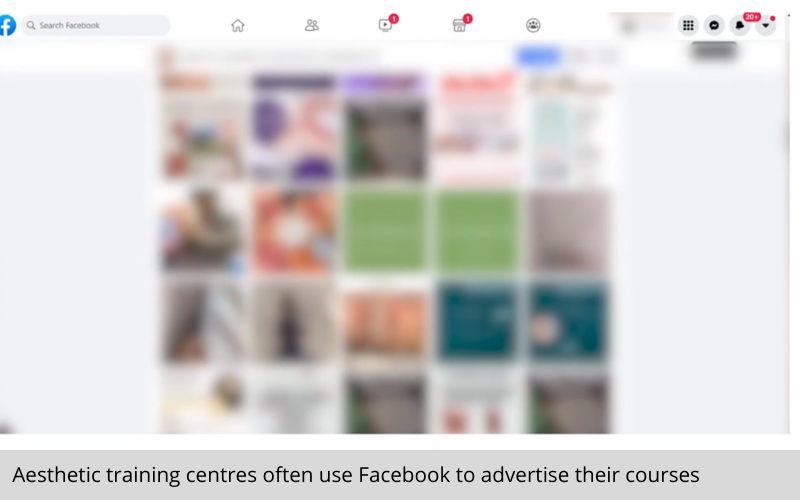
There are many legitimate companies that provide extensive training.
But we were told by campaigners that the aggressive advertising culture online can make it difficult for potential students to tell whether the course they've signed up for is going to give them proper training.
Ashton Collins, from Save Face UK, which manages a register of accredited practitioners, called social media a "catalyst" for the problem.
"When you look to get into this sector you are reliant on the quality of the training provider's marketing and a lot of people are lured in by their Instagram ads and Facebook pages," she told Sky News.
"They use misleading words like Academy and University and they offer things like diplomas and advanced certificates, which all sound impressive."
"But when you scratch beneath the surface, they have no teaching qualifications.
"They haven't been doing the treatments very long themselves and the certificates don't mean very much because it's a watch and learn approach," she said.
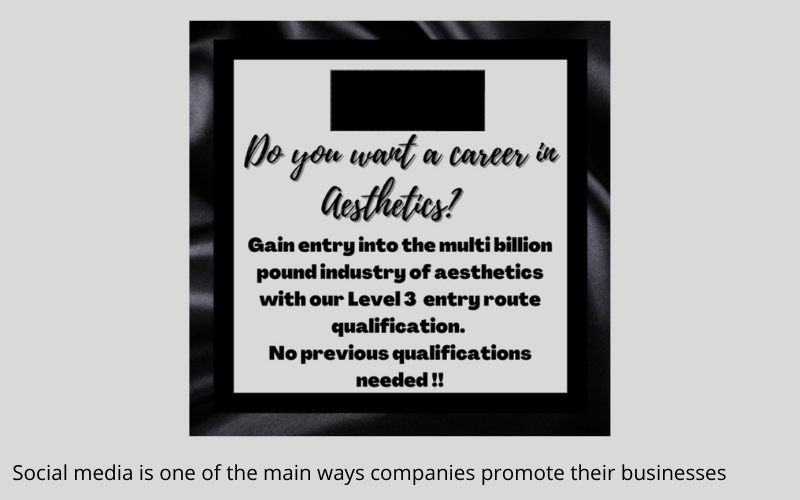
The Advertising Standards Authority has levied five official warnings against training companies for misleading advertising.
It's common for adverts to play on attractive prospects like "Becoming your own boss" or "Girl Boss".
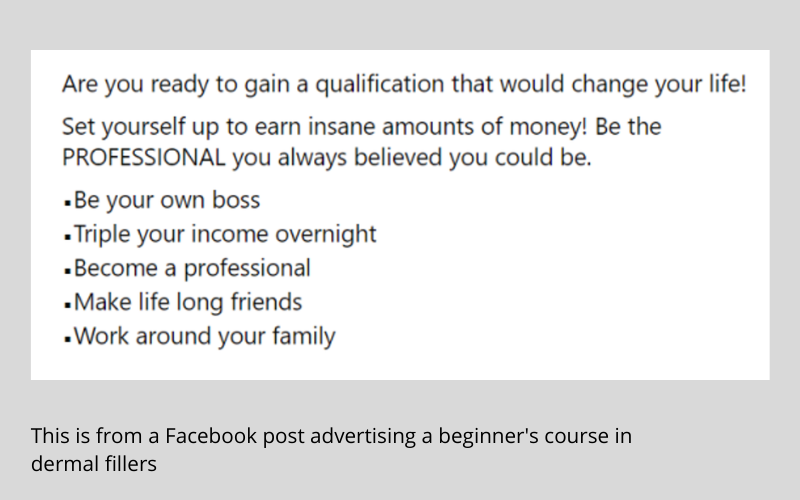
Some promise the opportunity to "make a six-figure salary" while others implore customers to "change your life today!".

Companies will also often offer big discounts for a "limited time only", seemingly shaving thousands of pounds off courses in some cases.
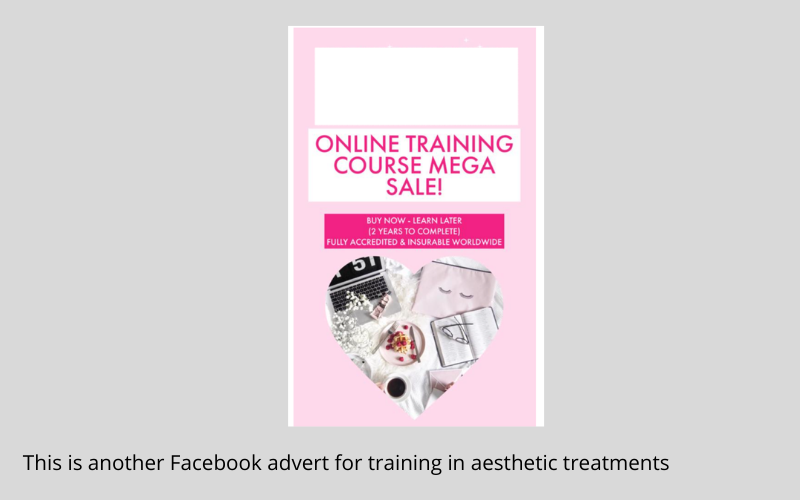
All of this forms part of an intense advertising culture which can be overwhelming for students looking to find the right course.
'It was very traumatic - they threatened my kids'
You might be wondering why we haven't included the names of the companies that are training people so badly.
To understand, let's return to Jane's story.
Dissatisfied with her course, she decided to ask the providers for a refund.
She was met with defensive messages and after a tense exchange, the provider said they would be contacting their legal team and the authorities.
Jane then received messages from the person who had referred her to the training provider, followed by a phone call in which she says they threatened her.
She says she was told that they "know where her kids go to school".
"It was very traumatic. I hope they don't do that to anyone else," she told Sky News.
Sarah (not her real name) runs Facebook groups with a total of over 20,000 members where students can seek advice on finding the right courses and ask any questions.
She says she's had hundreds of students inform her of bad experiences with training academies.
And when she's called out companies for their behaviour on social media, she's been met with online harassment and legal threats.
"I've had numerous legal letters," she said.
Ashton Collins of Save Face says threats are common within the industry.
"One woman came forward and said that the training provider had threatened to throw acid in her face and her children's faces," she said.
"These are very real threats that prevent people from speaking out and making public just how bad these training courses are.
"It's quite a murky underworld."
Could regulation be on the horizon?
The All Party Parliamentary Group on Aesthetics, Wellbeing and Beauty launched an inquiry last year investigating standards for undertaking and advertising non-surgical aesthetic treatment.
Training standards are being looked at as part of this.
Carolyn Harris MP co-chairs the group.
"We are still looking for the perfect set of training resources," she said.
"It's a combination of a lot of people's work. It's not there yet, but it's certainly not the people who just set up a little shop or training school and produce a piece of paper which is not worth what it's written on.
"There's a lot of people who have been trained by people who should not be in this environment," she told Sky News.
Advice for students from Ashton Collins, Save Face
"If you are a beginner, don't rely on marketing or word of mouth. Seek out a training company that teaches a syllabus that is mapped against a regulated curriculum standard, such as that of the Qualification Council for Cosmetic Procedures."
"Find a mentor who will allow you to shadow them, and who can supervise your treatments. Save Face have connected several newly trained practitioners with local mentors to ensure they are practising safely."
The group is hopeful that Nadine Dorries, Minister for Mental Health, Suicide Prevention and Patient Safety, will use the inquiry's findings as the starting point for regulation.
"We need proper regulation, appropriate regulation," said MP Judith Cummins, who chairs the group alongside Ms Harris.
"I'm not saying that we should regulate it out of existence, because there's a lot of good people out there. It's an industry that's run by women for women on the whole.
"This is a good opportunity for women to employ other people and to own a business."
But they say that unless the government intervenes, the issue of substandard training is unlikely to go away.


